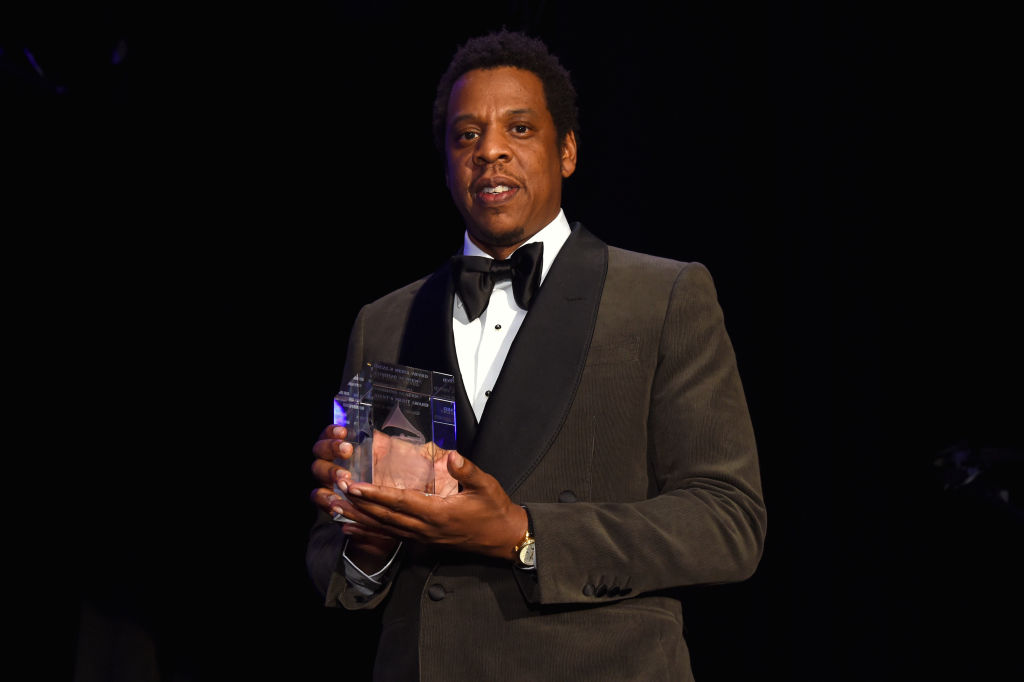When the list of Grammy nominations came out in November, one of the most notable bits of news was unusually strong representation of rap artists outside of rap-specific categories. Almost all of the Record of the Year nominees—including “Redbone,” “Despacito,” and the eventual winner “24K Magic”—were hip-hop adjacent, but Kendrick Lamar’s “HUMBLE.” and Jay-Z’s “The Story of O.J.” are straight-ahead, unabashed rap music. Album of the Year also included nominations for Kendrick and Jay, along with sometimes-rapper Childish Gambino’s retro-R&B homage Awaken, My Love!. Song of the Year included another Jay nomination (“4:44”) and a bone thrown to Logic for his suicide-prevention single “1-800-273-8255.” Lil Uzi Vert was up for Best New Artist, as an acknowledgement the true will and spirit of America’s youth. Ultimately, the most nominated artists in major categories were Jay-Z and Kendrick, with a whopping eight and seven nominations respectively, which seemed like an overt signal that the Grammys were prepared to fully recognize rap music at this year’s ceremony.
But then the show commenced (with a typically great Kendrick performance), and Jay-Z won none of his categories, including the four rap-specific ones, which all went to Lamar. Hov was instead given a mere nod in James Corden’s opening monologue and in Kendrick’s acceptance speech for Best Rap Album. Before the show started, Jay attended Clive Davis’ annual preshow gala to receive a Salute to Industry Icons Award. As the major awards were announced, Kendrick would be shut out, too, losing, along with everyone else, to Bruno Mars. The aggressive number of nominations for both Jay and Kendrick now seem like empty gestures.
Diversity and genre equality have traditionally been an issue for the Grammys, rising to the surface in recent years. This year, the staggering lack of female winners inspired a #GrammysSoMale hashtag, and last year was the year of #GrammysSoWhite; to that end, Adele’s guilt and surprise after winning Album of the Year over Beyoncé’s Lemonade was perhaps the defining on-stage moment of that year. (In last night’s ceremony, too, the female R&B auteur of the moment–SZA–was given short shrift after logging an unexpected 5 nominations, including one for Best New Artist.)
Jay-Z, meanwhile, may come to the end his career and be stuck with his 21 Grammy wins, which were often for features on other people’s songs (“Umbrella,” “Crazy in Love,” “Drunk in Love,” etc.) or entirely slotted in rap and R&B categories. Even “Empire State of Mind”–ubiquitous and the biggest crossover single of Jay’s career–couldn’t snag Record of the Year in 2011. It lost (and of course it did) to Adele’s “Rolling in the Deep,” with Jay and Alicia Keys taking home Best Rap Song instead. Did anyone really expect “The Story of O.J.,” with its unrepentant sociopolitical overtones, to fare any better than “Empire” in a category in which a hip-hop song has never won? Jay-Z will remain an “industry icon” more than a pivotal rap artist in the Recording Academy’s mind till Earth falls into the sun, and hip-hop–especially the explicitly political kind–will likely stay in its corner. The Grammys just need you to believe each year that they will be different this time around so you’ll turn them on in the first place.





